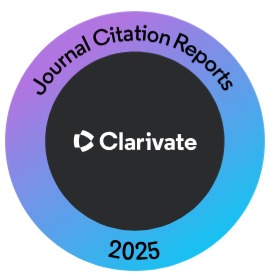Relationship of Metabolic Syndrome Indicators in Gestational Diabetes with Adiponectin Levels
Keywords:
Adiponectin, metabolic syndrome, HDL, triglycerides, hypertension, systolic BP, diastolic BPAbstract
Objective: To assess the relationship between MetS in gestational diabetes with adiponectin.
Methodology: This analytical cross-sectional study was carried out from February 2015 - January 2016 at Gynecology and Obstetrics OPDs in four public and one private tertiary care hospital in Peshawar, Khyber Pakhtunkhwa, Pakistan. Purposive sampling was done. Group one comprised 100 healthy pregnant women, while the second group included 100 pregnant women with known gestational diabetes. Women in the third trimester, with a single fetus, and who did not have pre-existing diabetes mellitus were Included. Women in the first or second trimester, with twin (or more fetuses) pregnancies, and pre-existing diabetes were excluded. BMI and systolic and diastolic blood pressure of participants were recorded. Blood was tested for serum lipids, HbA1c, and serum adiponectin levels.
Results: Thirty percent of participants had a BMI ?30 kg/m². Forty-three percent of participants had HbA1c ?6.5%. HDL levels were below normal in 30% of participants, and triglyceride levels were higher than average in about 80%. Systolic Blood Pressure was elevated in 23% of participants, and adiponectin level was low in >60% of cases. BMI was not statistically different between both groups. HDL levels and adiponectin levels were lower than normal in the diabetic group. Triglyceride levels were high in both groups. Regression analysis showed that adiponectin levels were affected by HbA1c and low HDL levels, and vice versa. Data were analyzed by SPSS version 20.
Conclusion: Low adiponectin levels could predict two MetS indicators in gestational diabetes and vice versa.
References
Aguilar-Salinas CA, Viveros-Ruiz T. Recent advances in managing/understanding the metabolic syndrome. F1000Res. 2019; 8: 370. doi: 10.12688/f1000research.17122.1.
Pheiffer C, Dias S, Jack B, Malaza N, Adam S. Adiponectin as a Potential Biomarker for Pregnancy Disorders. Int J Mol Sci. 2021; 22(3): 1326. doi: 10.3390/ijms22031326.
McCracken E, Monaghan M, Sreenivasan S. Pathophysiology of the metabolic syndrome. Clin Dermatol. 2018; 36(1): 14-20. doi: 10.1016/j.clindermatol.2017.09.004.
Cs L, Tc A. HbA1c in the diagnosis and management of diabetes mellitus: an update. Diabetes Updates. 2019; 5. doi: 10.15761/DU.1000137.
Petersmann A, Muller-Wieland D, Muller UA, Landgraf R, Nauck M, Freckmann G et al. Definition, Classification and Diagnosis of Diabetes Mellitus. Exp Clin Endocrinol Diabetes. 2019; 127(S-01): S1-S7. doi: 10.1055/a-1018-9078. Epub 2019 Dec 20.
Martínez-Hortelano JA, Cavero-Redondo I, Álvarez-Bueno C, Garrido-Miguel M, Soriano-Cano A, Martínez-Vizcaíno V. Monitoring gestational weight gain and pre-pregnancy BMI using the 2009 IOM guidelines in the global population: a systematic review and meta-analysis. BMC Pregnancy Childbirth. 2020; 20(1): 649. doi: 10.1186/s12884-020-03335-7.
Yue CY, Ying CM. Epidemiological analysis of maternal lipid levels during the second trimester in pregnancy and the risk of adverse pregnancy outcome adjusted by pregnancy BMI. J Clin Lab Anal. 2018; 32(8): e22568. doi: 10.1002/jcla.22568. Epub 2018 May 17.
Yanai H, Yoshida H. Beneficial Effects of Adiponectin on Glucose and Lipid Metabolism and Atherosclerotic Progression: Mechanisms and Perspectives. Int J Mol Sci. 2019; 20(5): 1190. doi: 10.3390/ijms20051190.
Mallardo M, Ferraro S, Daniele A, Nigro E. GDM-complicated pregnancies: focus on adipokines. Mol Biol Rep. 2021; 48(12): 8171-8180. doi: 10.1007/s11033-021-06785-0.
Raza S, Ali U, Zubairi AM, Salim E. Mean Adiponectin Levels and Frequency of Hypoadiponectinemia in Gestational Diabetes Mellitus. Pak J Med Dent. 2021; 10(1): 37-43. doi: 10.36283/PJMD10-1/007.
Liu H, Yang Y, Wang Y, Tang H, Zhang F, Zhang Y et al. Ketogenic diet for treatment of intractable epilepsy in adults: A meta-analysis of observational studies. Epilepsia Open. 2018; 3(1): 9-17. doi: 10.1002/epi4.12098.
Gariballa S, Alkaabi J, Yasin J, Al Essa A. Total adiponectin in overweight and obese subjects and its response to visceral fat loss. BMC Endocr Disord. 2019; 19(1): 55. doi: 10.1186/s12902-019-0386-z
Nguyen Diep, Mong Thi. Adiponectin: Role in physiology and pathophysiology. Int J Prev Med. 2020; 11: 136. doi: 10.4103/ijpvm.IJPVM_193_20.
Wattanapol P, Vichinsartvichai P, Sakoonwatanyoo P. Serum adiponectin is a potential biomarker for metabolic syndrome in peri-and postmenopausal women. Gynecol Endocrinol. 2020; 36(7): 620-625. doi: 10.1080/09513590.2020.1742688. Epub 2020 Apr 1.
Zahary MN, Harun NS, Yahaya R. Serum adiponectin and resistin: Correlation with metabolic syndrome and its associated criteria among temiar subtribe in Malaysia. Diabetes Metab Syndr. 2019; 13(3): 2015-2019. doi: 10.1016/j.dsx.2019.04.048. Epub 2019 Apr 25.
Adu?Gyamfi EA, Fondjo LA, Owiredu WKBA, Czika A, Nelson W, Lamptey J et al. The role of adiponectin in placentation and pre-eclampsia. Cell Biochem Funct. 2020; 38(1): 106-117. doi: 10.1002/cbf.3458. Epub 2019 Nov 19.
Zhao S, Kusminski CM, Scherer PE. Adiponectin, Leptin and Cardiovascular Disorders. Circ Res. 2021; 128(1): 136-139. doi: 10.1161/CIRCRESAHA.120.314458. Epub 2021 Jan 7.
Madhu S, Bhardwaj S, Jhamb R, Srivastava H, Sharma S, Raizada N. Prediction of gestational diabetes from first trimester serum adiponectin levels in Indian Women. Indian J Endocr Metab. 2019; 23(5): 536-39. doi: 10.4103/ijem.IJEM_319_19.
Downloads
Published
How to Cite
Issue
Section
License
Copyright (c) 2023 Journal of Liaquat University of Medical & Health Sciences

This work is licensed under a Creative Commons Attribution-NonCommercial-ShareAlike 4.0 International License.
Submission of a manuscript to the journal implies that all authors have read and agreed to the content of the undertaking form or the Terms and Conditions.
When an article is accepted for publication, the author(s) retain the copyright and are required to grant the publisher the right of first publication and other non-exclusive publishing rights to JLUMHS.
Articles published in the Journal of Liaquat University of Medical & health sciences are open access articles under a Creative Commons Attribution-Noncommercial - Share Alike 4.0 License. This license permits use, distribution and reproduction in any medium; provided the original work is properly cited and initial publication in this journal. This is in accordance with the BOAI definition of open access. In addition to that users are allowed to remix, tweak and build upon the work non-commercially as long as appropriate credit is given and the new creations are licensed under the identical terms. Or, in certain cases it can be stated that all articles and content there in are published under creative commons license unless stated otherwise.























